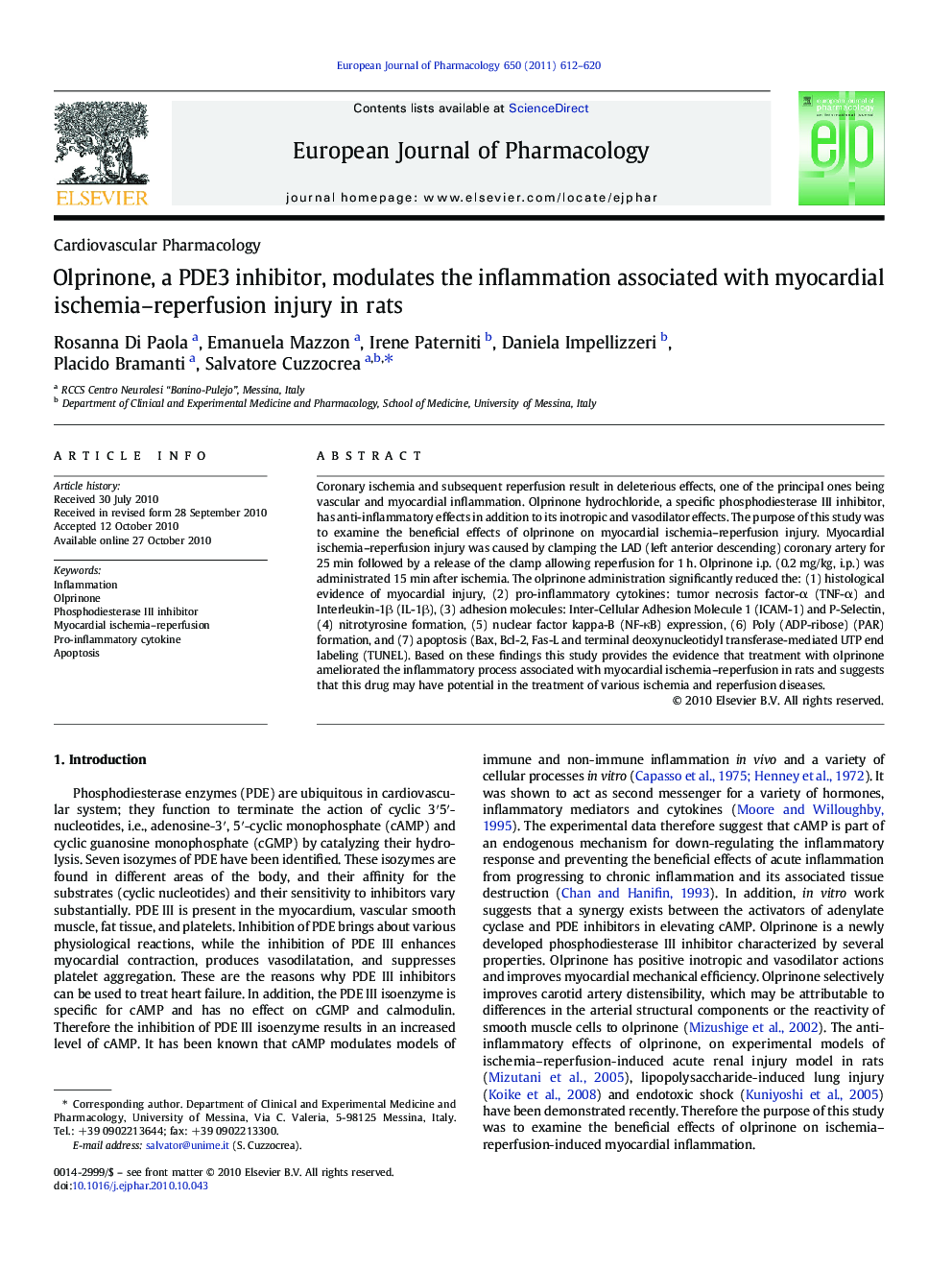| Article ID | Journal | Published Year | Pages | File Type |
|---|---|---|---|---|
| 2533035 | European Journal of Pharmacology | 2011 | 9 Pages |
Coronary ischemia and subsequent reperfusion result in deleterious effects, one of the principal ones being vascular and myocardial inflammation. Olprinone hydrochloride, a specific phosphodiesterase III inhibitor, has anti-inflammatory effects in addition to its inotropic and vasodilator effects. The purpose of this study was to examine the beneficial effects of olprinone on myocardial ischemia–reperfusion injury. Myocardial ischemia–reperfusion injury was caused by clamping the LAD (left anterior descending) coronary artery for 25 min followed by a release of the clamp allowing reperfusion for 1 h. Olprinone i.p. (0.2 mg/kg, i.p.) was administrated 15 min after ischemia. The olprinone administration significantly reduced the: (1) histological evidence of myocardial injury, (2) pro-inflammatory cytokines: tumor necrosis factor-α (TNF-α) and Interleukin-1β (IL-1β), (3) adhesion molecules: Inter-Cellular Adhesion Molecule 1 (ICAM-1) and P-Selectin, (4) nitrotyrosine formation, (5) nuclear factor kappa-B (NF-κB) expression, (6) Poly (ADP-ribose) (PAR) formation, and (7) apoptosis (Bax, Bcl-2, Fas-L and terminal deoxynucleotidyl transferase-mediated UTP end labeling (TUNEL). Based on these findings this study provides the evidence that treatment with olprinone ameliorated the inflammatory process associated with myocardial ischemia–reperfusion in rats and suggests that this drug may have potential in the treatment of various ischemia and reperfusion diseases.
